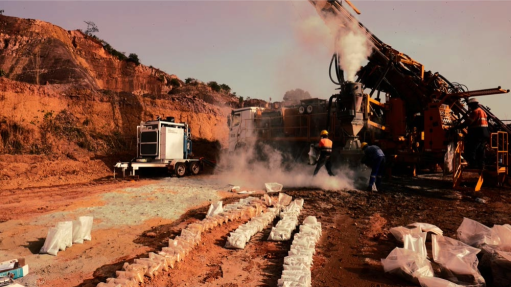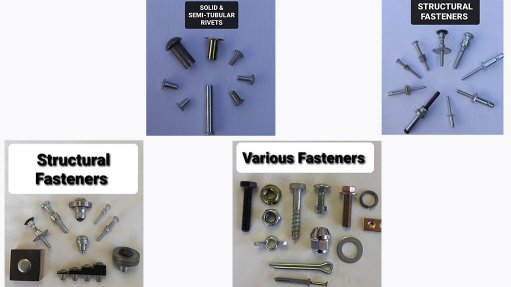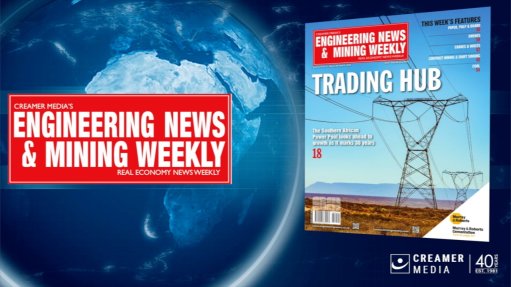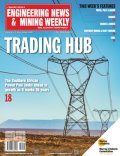Report finds ESG data disclosers fare better than non-sharing, opaque peers
Amid persistent opacity in the extractive sector, Swiss research organisations the Responsible Mining Foundation (RMF) and the World Resources Forum (WRF) have debunked the commonly believed myth that public disclosure harms competitiveness and that financial data needs to be kept confidential.
In its latest ‘Extractive Commodity Trading Report’, the RMF and the WRF find that some companies started sharing more information on their yearly turnover, taxes paid and purchases from governments, for example, on a voluntary basis in 2022, compared with 2021; however, most companies still choose not to share this information.
Therefore, many companies are unable, or unwilling, to show that they are taking action to prevent supply chain risks, such as human rights abuses, illicit financial flows and environmental damage.
The report summarises the public disclosure among a sample of 25 companies in the extractive commodity trading sector, finding that the overall performance increased only marginally, from 33% to 34% over 2021 and 2022.
The trading of extractive commodities such as oil, gas, metals and minerals is of huge importance to maintain global flows of materials and revenues for economic development; however, recent events such as the war in Ukraine and Covid-19 have underscored the interconnections between the commodity trading sector and sustainable development.
Governments, financiers and customers are increasingly demanding that the extractive industry demonstrate more systematic action and transparency on economic and environment, social and governance (ESG) issues, particularly as it helps to achieve international standards on human rights and sustainable development.
WRF MD Dr Mathias Schluep says trading companies can follow the examples of their more transparent peers to meet societal expectations on public disclosure without compromising their own competitiveness.
The report states that most companies’ due diligence systems are very limited, often stopping at the initial step of setting expectations for their suppliers.
Few systems extend to the critical stages of assessing supplier compliance, engaging with suppliers and taking action to address any noncompliance.
Without these elements, the due diligence systems will never contribute to the prevention of critical supply chain risks. “And there is little sign that companies are making efforts to review and improve the effectiveness of their due diligence systems,” the report finds.
For example, about two-thirds of the companies show no evidence of tracking their performance on managing human rights risks in their supply chain.
The report’s findings are set in the context of ongoing commodity flow disruption and price volatility linked to recovering economies and sanctions imposed by some countries in response to the war in Ukraine.
Companies in the commodity trading sector are expected to come under greater scrutiny as banks and regulators demand more transparency and more evidence of responsible practices.
Alongside the detailed assessment of companies’ ESG measures, the RMF and WRF report shows that, over the last five years, more than half of the assessed companies (or employees of these companies) are known to have faced investigations or court cases related to illegal practices such as bribery, price manipulation, fraudulent transactions, money laundering and tax evasion.
Incidents are reported to have involved over a dozen countries, including all regions of the world.
Companies with relatively sophisticated compliance systems are among those involved in the reported incidents.
While some of these practices evidently pre-date companies’ current due diligence systems, they can cast doubts on the effectiveness of companies' policies and practices, while doing lasting damage to the reputation of the whole industry.
The report further formulates a set of immediate opportunities for companies to improve their ESG policies and practices. These "easy win" opportunities include adopting and adapting the models provided by peers, embedding supplier expectations in contracts, documenting and publicly reporting what is already being tracked, and considering where confidentiality may be unnecessary.
RMF and WRF highlight in the report examples of good practice on a range of issues including for example a guidebook and a financial incentive scheme to encourage supplier compliance with responsible sourcing requirements.
Finally, the report finds clear evidence that legislation drives better practice.
Companies subject to disclosure requirements – from governments, lenders or others – on issues such as human rights, lobbying, taxes and payments, tend to perform better than their peers.
Unfortunately, there is no evidence that they apply the same good practice in jurisdictions where they are not required to disclose.
Without strong external stimuli, the pace of improvement on these issues will remain very slow.
Comments
Press Office
Announcements
What's On
Subscribe to improve your user experience...
Option 1 (equivalent of R125 a month):
Receive a weekly copy of Creamer Media's Engineering News & Mining Weekly magazine
(print copy for those in South Africa and e-magazine for those outside of South Africa)
Receive daily email newsletters
Access to full search results
Access archive of magazine back copies
Access to Projects in Progress
Access to ONE Research Report of your choice in PDF format
Option 2 (equivalent of R375 a month):
All benefits from Option 1
PLUS
Access to Creamer Media's Research Channel Africa for ALL Research Reports, in PDF format, on various industrial and mining sectors
including Electricity; Water; Energy Transition; Hydrogen; Roads, Rail and Ports; Coal; Gold; Platinum; Battery Metals; etc.
Already a subscriber?
Forgotten your password?
Receive weekly copy of Creamer Media's Engineering News & Mining Weekly magazine (print copy for those in South Africa and e-magazine for those outside of South Africa)
➕
Recieve daily email newsletters
➕
Access to full search results
➕
Access archive of magazine back copies
➕
Access to Projects in Progress
➕
Access to ONE Research Report of your choice in PDF format
RESEARCH CHANNEL AFRICA
R4500 (equivalent of R375 a month)
SUBSCRIBEAll benefits from Option 1
➕
Access to Creamer Media's Research Channel Africa for ALL Research Reports on various industrial and mining sectors, in PDF format, including on:
Electricity
➕
Water
➕
Energy Transition
➕
Hydrogen
➕
Roads, Rail and Ports
➕
Coal
➕
Gold
➕
Platinum
➕
Battery Metals
➕
etc.
Receive all benefits from Option 1 or Option 2 delivered to numerous people at your company
➕
Multiple User names and Passwords for simultaneous log-ins
➕
Intranet integration access to all in your organisation

















